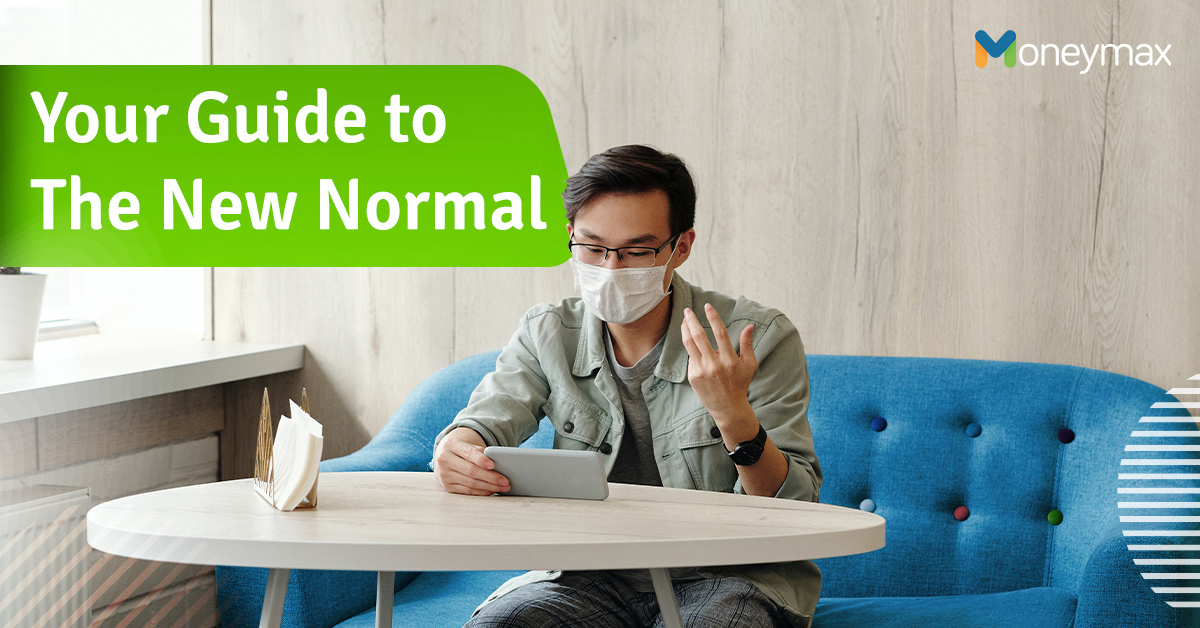The COVID-19 pandemic has hit nearly everyone around the world and has forced millions around the globe to work-from-home; a trend that we already started to see increase prior to the outbreak.
When we are allowed to return to our offices, they’re likely going to be quite different with social distancing measures and health and safety measures implemented into office design. We’re likely going to see more automatic doors, more spacing between desks, reduced space dedicated to open floor plans, and more spacious meeting rooms. When it comes to flexible workspaces there will be an increased focus on private offices rather than hot desks. In short, social distancing policies will be embedded into office spaces.
Flexible Work Arrangements in The New Normal

Flexible work arrangements will become the new normal for companies. As employers see that remote work does in fact work, policies allowing for more flexible arrangements will become formalized. Likewise, these flexible arrangements are an avenue to help companies cut costs as well as avoid layoffs. By reducing leases and offering alternative workplace options to employees, companies can save up to 25% on costs[1].
Another push for flexible arrangements for employees is the density of their office spaces. In terms of health and safety, companies will likely look to de-densify their spaces by reducing the number of employees in the office and spreading out workspaces[2]. This can be achieved by allowing flexi time schedules, work-from-home policies, as well as moving entire teams to another location to avoid mass disruption when another outbreak occurs.
Read more: Work from Home: Is Telecommuting Good or Bad for You?
But what might these flexible work arrangements look like? What we will likely witness is the allowance for employees to work two to three days out of the week either from home or from a flexible workspace closer to their home location.
However, there are some industries that will not be as flexible towards work-from-home policies. As we are seeing during the enhanced community quarantine, BPOs and companies with strict processes in place have continued to operate as usual only with some adjustments, e.g. providing nearby accommodation to staff or free transportation to and from work. Nevertheless, the vast majority of SMEs and corporations who have been forced to work-from-home will and should look to implement similar flexible policies post-lockdown.
In fact, we’ve seen companies adopt these policies prior to the pandemic, however its acceptance has accelerated: companies that previously inquired for traditional office space have been inquiring about flexible workspaces for their teams.
The Benefits of Flexible Workspaces

Whether you’ve used them before or aren’t sure they’re the right fit for you or your company, flexible workspaces offer a number of benefits.
A key benefit is short-term leases on a rolling monthly basis. Due to the economic downturn caused by this pandemic, it’s unlikely that companies will want to sign five or 10 year leases in the near future. However, with a flexible workspace, companies can sign up for only three or six months. In other words, companies can greatly reduce their risks and costs with these short-term commitments.
Read more: 7 Financial Mistakes to Avoid When Working from Home
It’s also worth mentioning that in light of the pandemic, these flexible workspaces have been working on outlining new standards for their locations to ensure the health and safety of their community. Operators such as WeWork, Spaces, and Clock In are altering the layout of their spaces to reduce density, looking at tech solutions to reduce physical touch points and implementing a travel policy for their members and their staff in order to reduce the spread of bacteria and viruses.
Taking these points in mind, we see two ways companies can utilize flexible workspaces to their advantage. The first is a partial adoption of them into their flexible work policies, the second is transferring their entire team into one or multiple flexible workspaces.
1. Partial Adoption
Once the enhanced community quarantine is lifted, some companies will want their teams to immediately come back to their offices. However, as mentioned earlier, new policies will have to be put in place in order to prevent potential spread of a virus.
Depending on the flexible work policy companies opt for, they can offer flexible workspaces to those in their team who don’t need to be in the main office every day.
Due to the flexibility offered by these workspaces, companies can rent small, fully-furnished, private offices on a monthly basis. There are also options to rent single desks in the open-plan layout for employees to use. Typically, fees for this type of set-up are already inclusive of furniture, utilities, reception staff, IT support, and many more amenities that significantly reduce a company’s capital expenditures.
2. Full Adoption
This brings us to the second option: full adoption. Due to the significant cost savings flexible workspaces can provide businesses, some may opt to transfer their entire teams by renting a larger private office or renting multiple smaller private offices for various departments.
The added benefit here is that by renting a private office, companies are also offered complimentary use of desks in the shared space. This can then be used by employees who opt to work from home for two or three days a week and come in for meetings or to work on projects with colleagues.
Final Thoughts
We know that the enhanced community quarantine will eventually be lifted and we will slowly return to work. However, it won’t be the same as before. New government regulations, new company policies, and new work arrangements are likely going to change our daily lives for good. Nevertheless, we can be sure of one thing: this crisis has highlighted the value and importance of flexibility to companies.
Read Next: The New Normal: What to Expect After the Lockdown
About the Author

Suvi Hoikka is Digital Marketing Manager at FlySpaces, an online marketplace for office spaces in Southeast Asia. She writes about anything and everything revolving around the workspace industry. Whether it’s the coolest rooftop event spaces in Jakarta or latest trends in office space diversity, her works continue to open relevant discussions on various workspace topics around the web.
Your brand can be featured, too! For partnership opportunities, email us at phmarketing@moneymax.ph.
Sources:
- [1] Tenant needs in a post-pandemic world: 2020 Forecast Series (JLL Website)
- [2] The Flexible Workspace Outlook Report 2017 | APAC (Colliers International)










